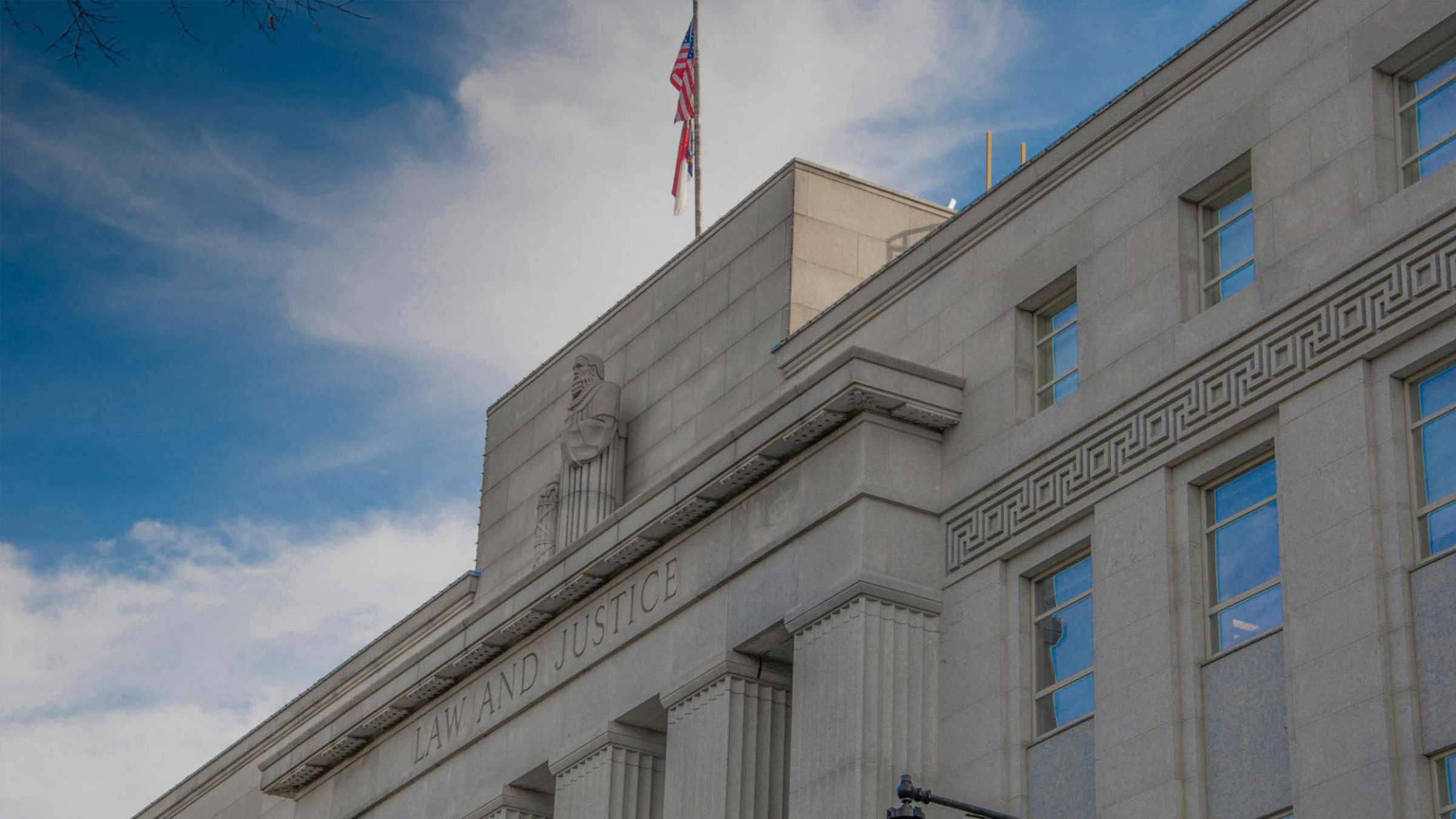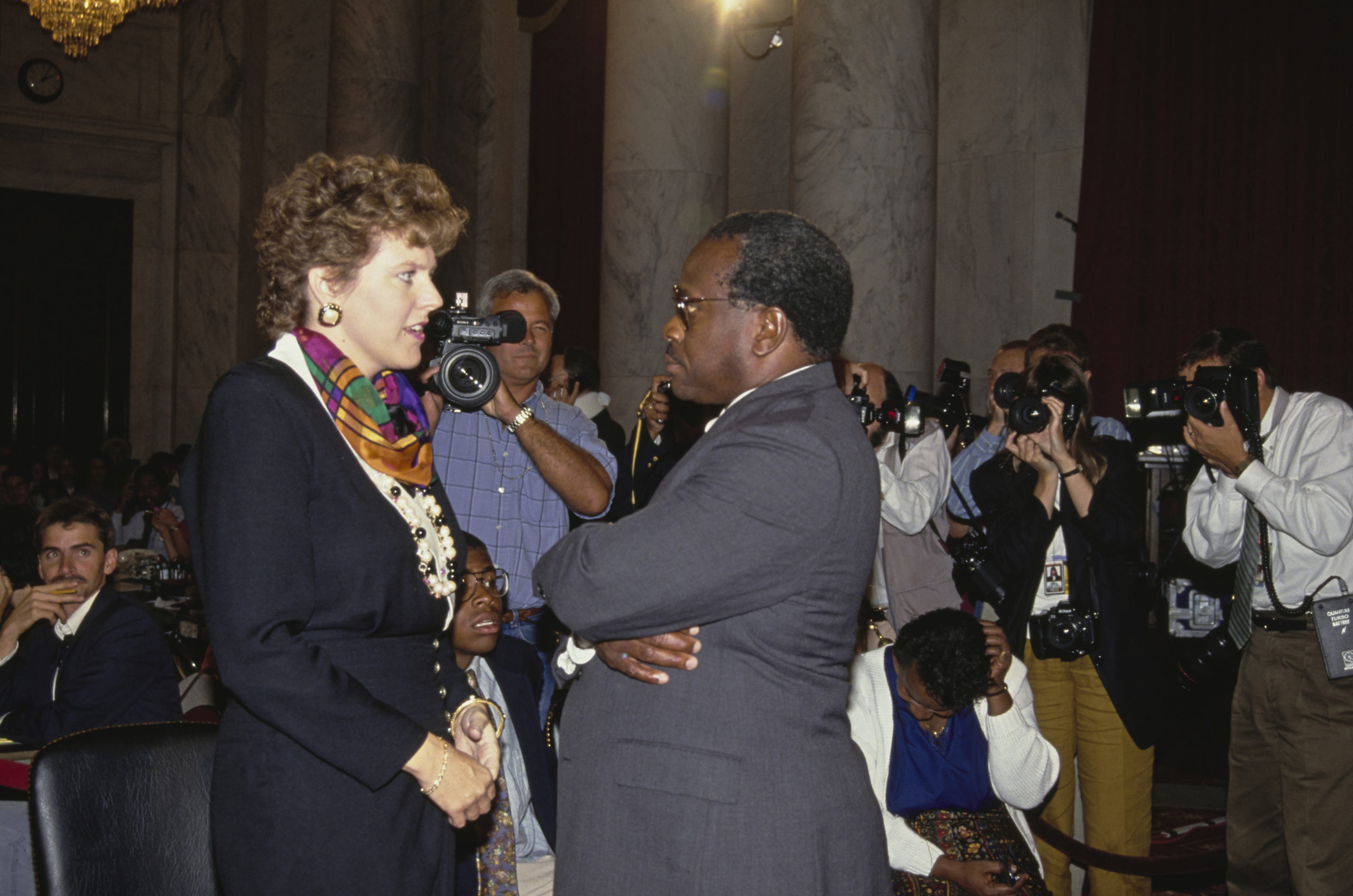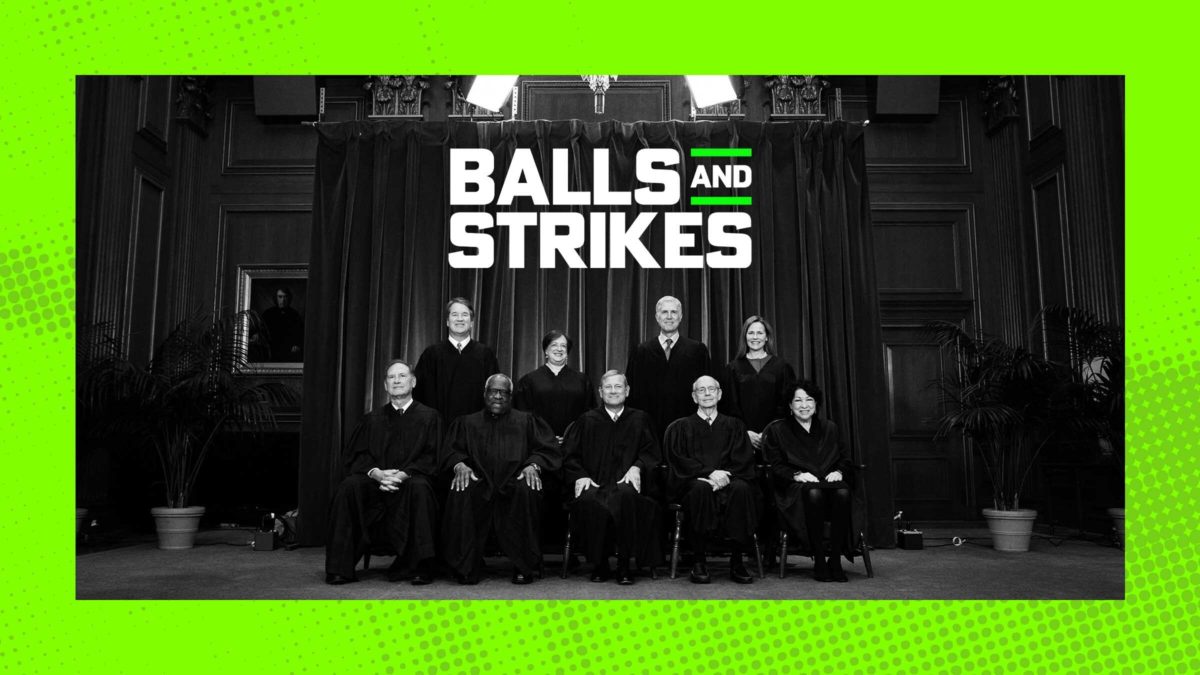The question in Moore v. Harper, a case out of North Carolina that the Supreme Court heard on Wednesday, sounds simple: Who gets to set the rules for federal elections in each state? A coalition of voting rights groups, election officials, and the Biden administration has an equally simple and boring answer: state governments, which are composed of the legislature that passes laws, the executive branch that enforces them, and the judicial branch that interprets them. This is basic tripartite-government stuff, familiar to anyone with even a passing knowledge of the Schoolhouse Rock canon.
North Carolina’s Republican lawmakers have a different and decidedly more alarming answer: Under what’s known as the independent state legislature theory, or ISLT, they argue that only they—elected state legislators and no one else—can draw congressional maps, prescribe the rules for casting ballots, and so on. The ISLT could, for example, allow lawmakers to ignore state-level voting rights protections that are inconvenient to their re-election prospects. It would also allow political parties to gerrymander themselves into power, even if—as in North Carolina—a state court declares a proposed legislative map unconstitutional. Doesn’t matter, Republicans say! Judges are not legislators, and are thus powerless to do anything about it.
The logic of ISLT is the most pedantic synthesis of originalism and textualism imaginable. The Elections Clause of the federal Constitution assigns the logistics of federal elections to each state’s “Legislature.” Anyone without detailed opinions about the integrity of Dominion Systems voting machines understands that this delegation of authority comes with the usual caveats: Any law, elections-related or otherwise, is subject to judicial review, gubernatorial enforcement, state constitutional limitations, and so on. The Elections Clause’s use of the word “Legislature,” in context, is just shorthand for the people who make laws by the standard processes. Again, Schoolhouse Rock stuff.
ISLT enthusiasts, however, contend that in this one specific context, this entire framework goes out the window, and one ostensibly co-equal branch of government gets to ignore the state constitution and tell the other two branches to eat shit. As Nathaniel Bach and Rick Hasen explain in Slate, state legislatures are simply not equipped to do the work of administering elections, which means that a robust ISLT would yield a 50-state patchwork of confusing, perhaps-contradictory rules and an endless conveyor belt of federal lawsuits fighting over them. Also, in a country where Republicans control the small-L legislatures in nearly 60 percent of states, were a future GOP presidential candidate to try to steal an election, the ISLT would be the likeliest legal justification for doing it.

The North Carolina Supreme Court, which North Carolina Republicans do not think should have any say in enforcing election law in North Carolina (Photo via NCCourts.gov)
The theory, which no Supreme Court majority has ever endorsed, has critics across the ideological spectrum. Federalist Society co-founder Steven Calabresi, for example, signed on to an amicus brief in Moore which asserts that the ISLT “flout core tenets of the American Founding,” which may or may not have earned him a stern talking-to from Federalist Society brass. Judge J. Michael Luttig, a retired George H.W. Bush appointee to the Fourth Circuit Court of Appeals, wrote in The Atlantic that the doctrine has “literally no support in the Constitution, the pre-ratification debates, or the history from the time of our nation’s founding,” which is as close as a federal judge gets to writing “horseshit.”
Fortunately, those concerned about the death of American democracy by judicial fiat can maybe (probably?) breathe easier than usual. Justices Clarence Thomas, Samuel Alito, and Neil Gorsuch—the Newsmax Three, as I like to call them—were relatively sympathetic toward the ISLT, which is consistent with some of their previous opinions. Gorsuch asked a bizarre series of questions equating opposition to the ISLT to support for the Three-Fifths Clause, in what I can only assume was a last-ditch effort to challenge Alito’s “Black Santa and the KKK Kid” riff for the grossest oral argument moment of the week.
Justice Brett Kavanaugh, however, an ISLT cheerleader since his Bush v. Gore days, seemed a bit more cautious this time around. Chief Justice John Roberts and Justice Amy Coney Barrett sounded even more skeptical, showing interest in a fix that would preserve the possibility of federal intervention in state election law, but in far more limited circumstances than Trump’s Kraken lawyers might like. By the end of oral argument, it felt like however the justices ultimately resolve Moore, the very worst version of the ISLT will remain confined, at least for now, to the Scotch-soaked pages of Rudy Giuliani’s dream journal.
One member of George W. Bush’s legal team was especially enthusiastic about the “independent state legislature” theory: Brett Kavanaugh.
Here he is endorsing it in 2000.
Now Kavanaugh gets a chance to write it into law. Talk about a long game. https://t.co/VlnfRdeCy6 pic.twitter.com/0oTDtHruNb
— Mark Joseph Stern (@mjs_DC) December 7, 2022
Unburdened for once by the duty to ward off inexorable constitutional disaster, the liberal justices were freer than usual to say how they really felt. Many of their questions for David Thompson, who represented North Carolina Republicans, ranged from morbidly curious to openly scornful. Justice Elena Kagan, tiring of what she called Thompson’s selective citations to precedent, finally hit him with an exasperated “If you’re going to quote one at me, I’m going to quote three at you,” which is the sort of experience that would prompt many fancy Supreme Court litigators to move to Islamorada and open a bait and tackle shop.
Justice Sonia Sotomayor, too, was noticeably frustrated by her obligation to sit for three-plus hours and listen to Thompson as if he were a serious person making serious points. At one point, she informed him that his logic made “no sense” before later upgrading him to “little sense,” a distinction I do not think she meant to be substantive. At another, she made fun of him for attempting to “rewrite history” in order to make his argument “very easy.” Towards the end of the afternoon, Sotomayor characterized him as “trying to articulate” a point, albeit “maybe inarticulately,” and allowed herself a little chuckle for posterity’s sake.
For the liberals, moments like these have been rare of late. In a Court controlled by a six-justice conservative supermajority, being a liberal justice is sort of like being the in-house dentist at the Wonka Chocolate Factory: The only real drama, especially in democracy-adjacent cases, is about which Republican nominee writes the opinion blessing some batshit legal theory that disapparates the voting rights of minority groups they don’t like. Wednesday’s something-less-than-the-worst-case-scenario oral argument was not the start of a trend, let alone some resounding victory for the future of democracy. But for a couple hours, it at least gave perpetually frustrated liberals the chance to get some shit off their chests.
As always, you can find us at ballsandstrikes.org, or follow us on Twitter at @ballsstrikes, or get in touch via [email protected]. Thanks for reading.
This Week In Balls & Strikes
Elena Kagan Said What Republicans Hoped to Keep Quiet, Yvette Borja
Supreme Court oral arguments are usually heavy on jargon. Kagan tried to cut through it.
The Aggressively Racist History of America’s Most-Prosecuted Federal Crimes: Immigration Offenses, Kara Hartzler
Congress passed key immigration laws to keep the country “white and purely Caucasian.” A federal appeals court will decide if this is OK or not.
If the Supreme Court Kills Affirmative Action, What Will Law Schools Do Next?, Yvette Borja
A conversation with Professor Kevin Brown about the uncertain future of racial equity in higher education admissions.
This Week In Other Stuff We Appreciated
You Won’t Even Believe Where Oral Arguments at SCOTUS Went on Monday, Dahlia Lithwick, Slate
On the conservative justices’ diminution of the pain of the parties they don’t care about.
The Court Case That Could Legalize the Next Coup, Elie Mystal, The Nation
On Gorsuch’s weird enthusiasm for talking about the Three-Fifths Clause.
The Supreme Court Needs Real Oversight, Glenn Fine, The Atlantic
On the troubling specter of Supreme Court justices judging themselves.
Raphael Warnock Is Officially Democrats’ 51st Senator. Here’s Why That Matters, Li Zhou, Vox
JUDICIAL CONFIRMATION SZN.
This Week In Obscure Photos of Supreme Court Justices On Getty Images


